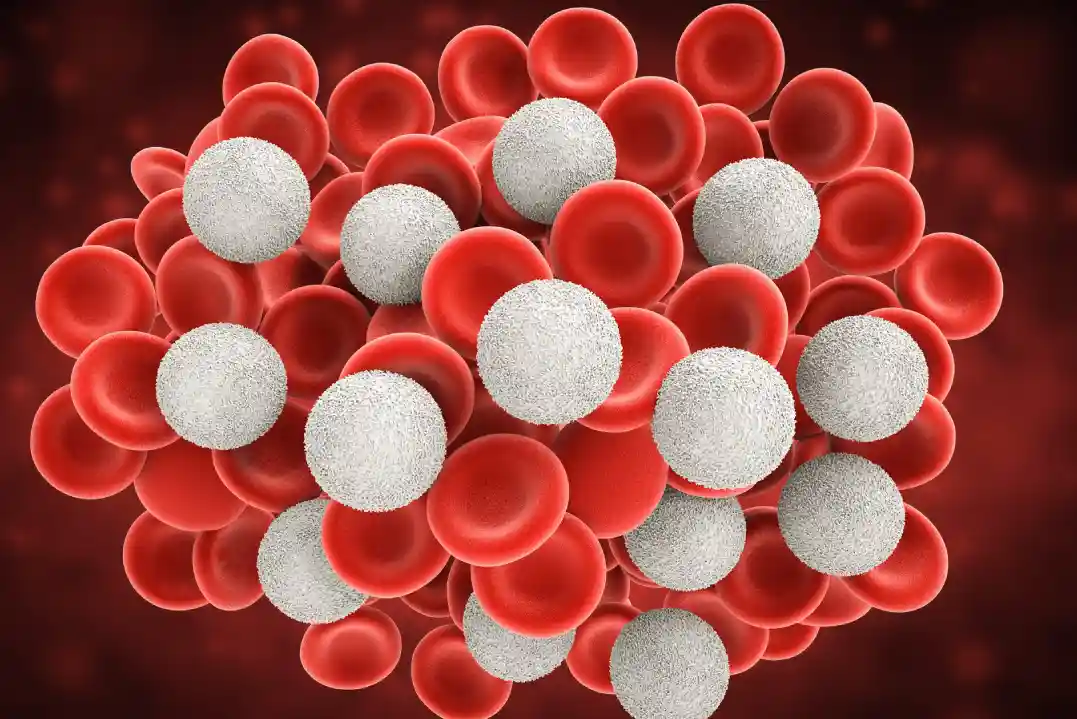White blood cells (WBCs), also known as leukocytes, are an essential part of the body’s immune system. They play a critical role in defending the body against infections and diseases by identifying and destroying pathogens such as bacteria, viruses, and fungi. While a certain level of white blood cells is necessary for optimal health, elevated levels can indicate underlying health issues. Here, we explore the causes and potential outcomes of high white blood cell counts:
Causes of High White Blood Cells:
- Infection: One of the most common causes of elevated white blood cell counts is infection. When the body detects an infection, it increases white blood cell production to combat the invading pathogens.
- Inflammation: Inflammatory conditions, such as arthritis, inflammatory bowel disease, and autoimmune disorders, can trigger an immune response that leads to an increase in white blood cell production.
- Allergic Reactions: Severe allergic reactions, including anaphylaxis, can stimulate the release of white blood cells as part of the body’s immune response.
- Stress and Trauma: Physical or emotional stress, as well as traumatic events like surgery or injury, can cause a temporary increase in white blood cell counts.
- Medications: Certain medications, such as corticosteroids, can stimulate the bone marrow to produce more white blood cells, resulting in elevated counts.
- Bone Marrow Disorders: Conditions affecting the bone marrow, such as leukemia, myeloproliferative disorders, and lymphomas, can lead to abnormal white blood cell production and elevated counts.
Results of High White Blood Cells:
- Increased Risk of Infection: While white blood cells are essential for fighting infections, persistently high levels may indicate chronic or severe infections that the body is struggling to overcome.
- Inflammatory Conditions: Elevated white blood cell counts may be indicative of underlying inflammatory conditions or autoimmune disorders that require medical attention and treatment.
- Bone Marrow Disorders: In some cases, a high white blood cell count may be a sign of bone marrow disorders such as leukemia, which can have serious implications for overall health and require prompt medical intervention.
- Diagnostic Clues: Monitoring white blood cell counts can provide valuable diagnostic information for healthcare professionals, helping to identify and monitor the progression of certain diseases and conditions.
- Risk of Complications: Persistently high white blood cell counts can strain the body’s immune system and may lead to complications such as organ damage, blood clots, and increased susceptibility to infections.
Conclusion:
While a temporary increase in white blood cell counts may be a normal response to infection, inflammation, or stress, persistently high levels can signal underlying health issues that require medical attention. Understanding the causes and potential outcomes of high white blood cell counts can help individuals recognize when to seek medical evaluation and treatment for optimal health and well-being. Regular monitoring of white blood cell counts, along with appropriate medical interventions, can help manage underlying conditions and reduce the risk of complications associated with elevated white blood cell counts.
FAQs
- What are white blood cells (WBCs), and what is their role in the body?
- White blood cells, also known as leukocytes, are a crucial component of the immune system. They help the body fight off infections and foreign invaders, such as bacteria, viruses, and other pathogens.
- What is considered a high white blood cell count?
- A high white blood cell count, also known as leukocytosis, is typically defined as having more than 11,000 white blood cells per microliter of blood in adults. However, the normal range can vary slightly depending on factors such as age and individual health status.
- What are the common causes of high white blood cell counts?
- Common causes of high white blood cell counts include bacterial or viral infections, inflammatory conditions (such as rheumatoid arthritis or inflammatory bowel disease), tissue damage or trauma, stress, certain medications (such as corticosteroids), smoking, and bone marrow disorders.
- What are the symptoms of high white blood cell counts?
- Symptoms of high white blood cell counts can vary depending on the underlying cause but may include fever, fatigue, weakness, frequent infections, unexplained weight loss, joint pain, and swollen lymph nodes.
- How is a high white blood cell count diagnosed?
- A high white blood cell count is typically diagnosed through a blood test called a complete blood count (CBC). This test measures the number and types of blood cells present in a sample of blood. Additional tests may be ordered to determine the underlying cause of the elevated white blood cell count.
- What are the potential complications of high white blood cell counts?
- While high white blood cell counts are often a sign that the body is fighting off an infection or responding to inflammation, persistent leukocytosis may indicate an underlying health condition that requires medical attention. If left untreated, certain causes of high white blood cell counts can lead to serious complications, such as sepsis, organ damage, or blood disorders.
- How is high white blood cell count treated?
- Treatment for high white blood cell counts depends on the underlying cause. In cases of infection, antibiotics or antiviral medications may be prescribed. Inflammatory conditions may be managed with anti-inflammatory medications or other treatments aimed at reducing inflammation. For more severe cases, such as leukemia or other blood disorders, specialized treatments may be required.



